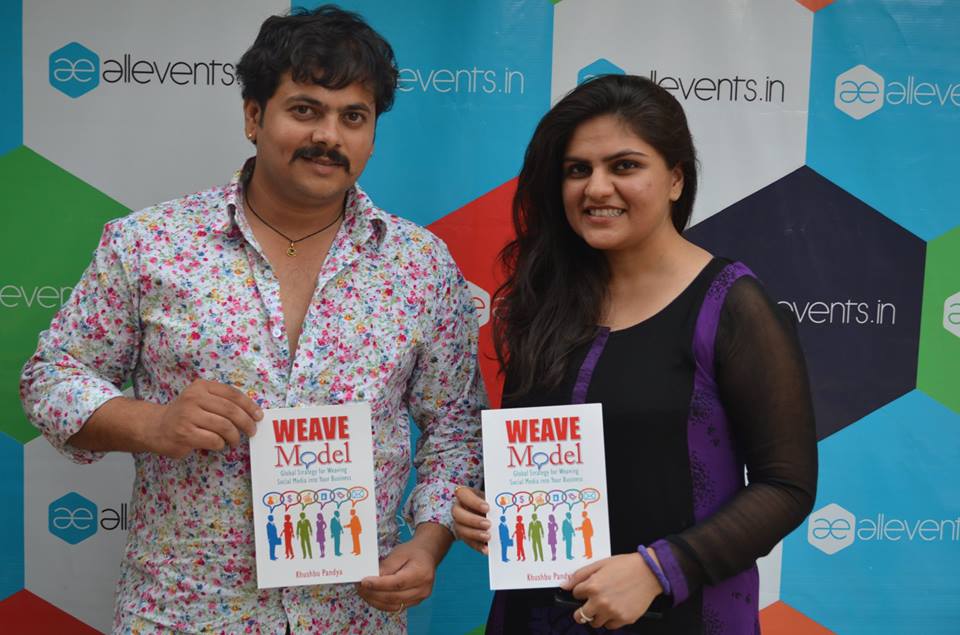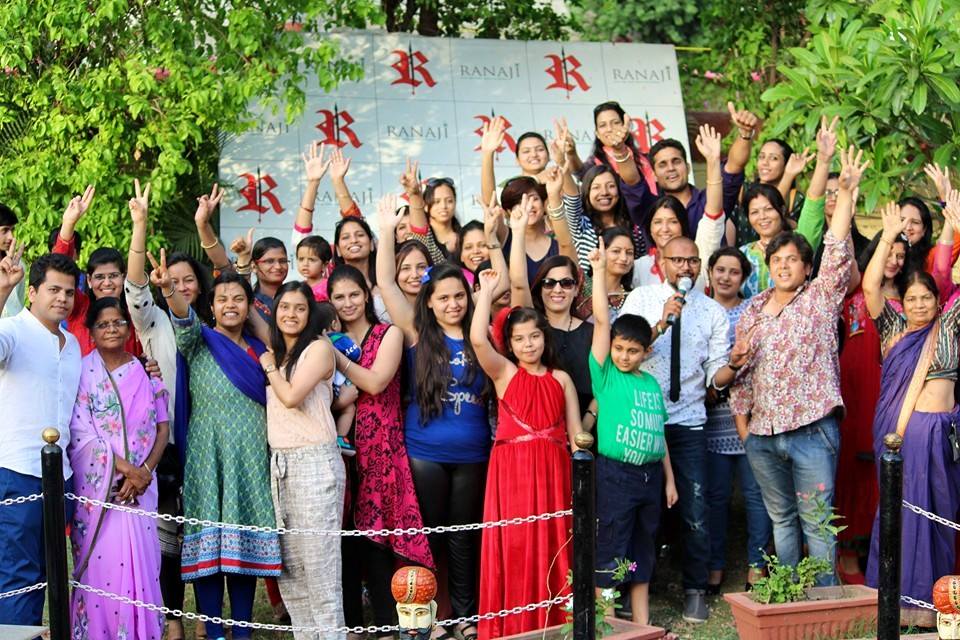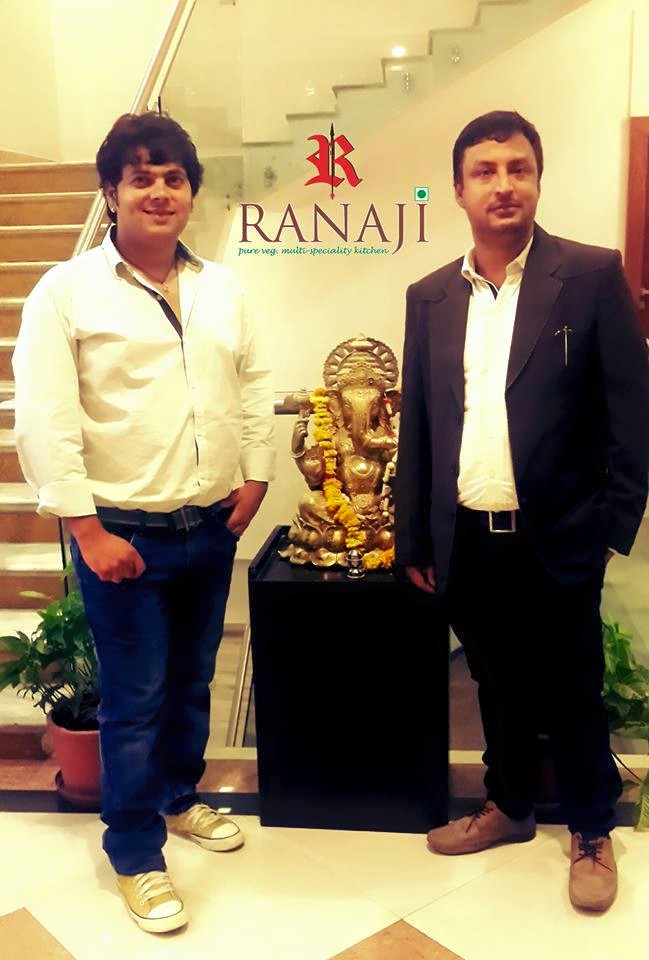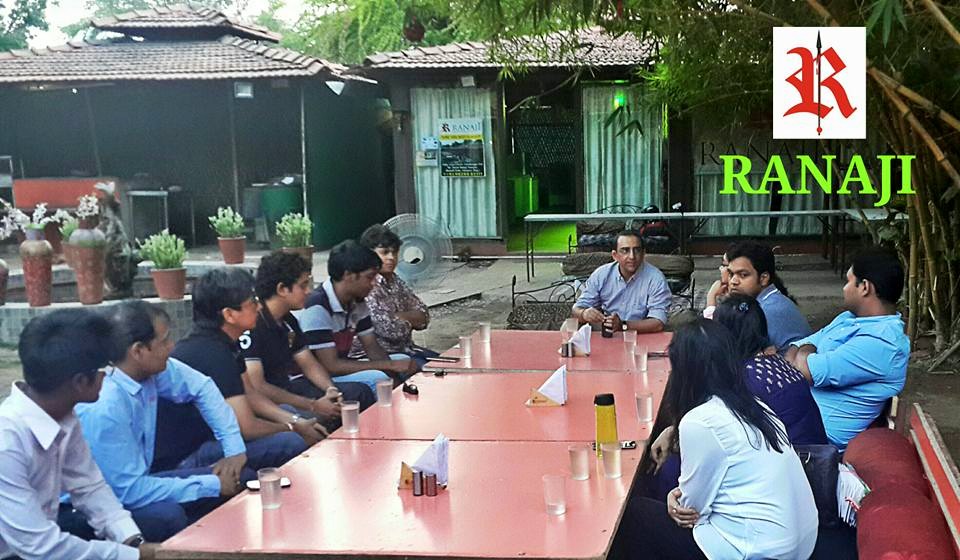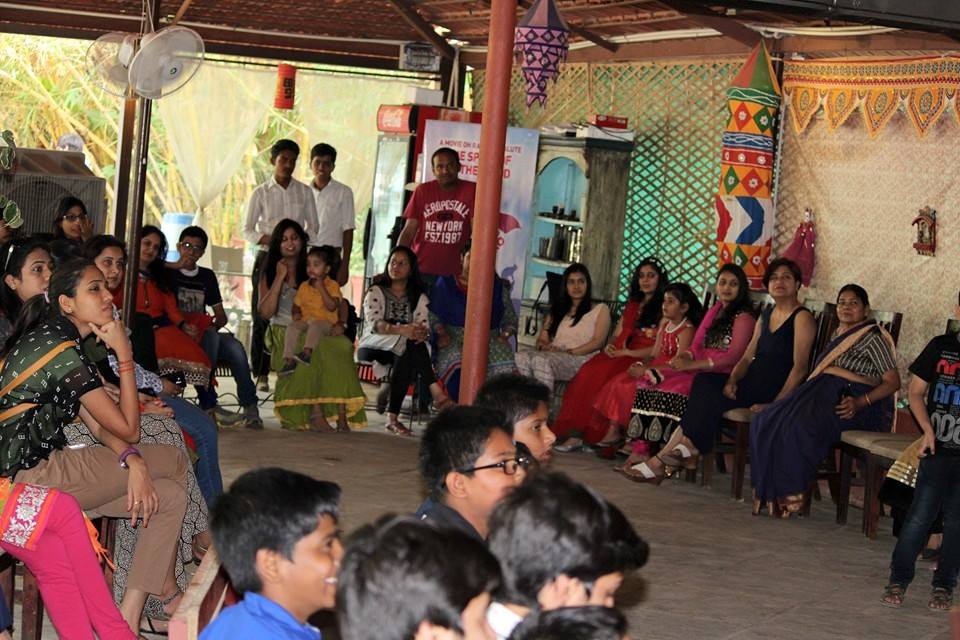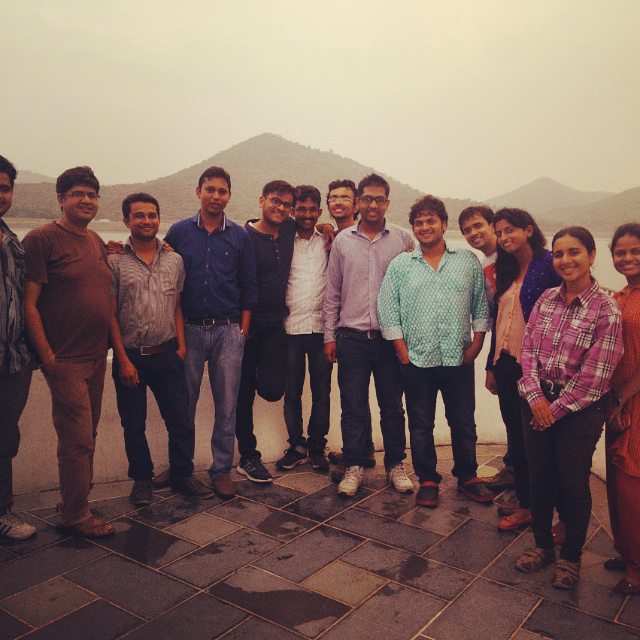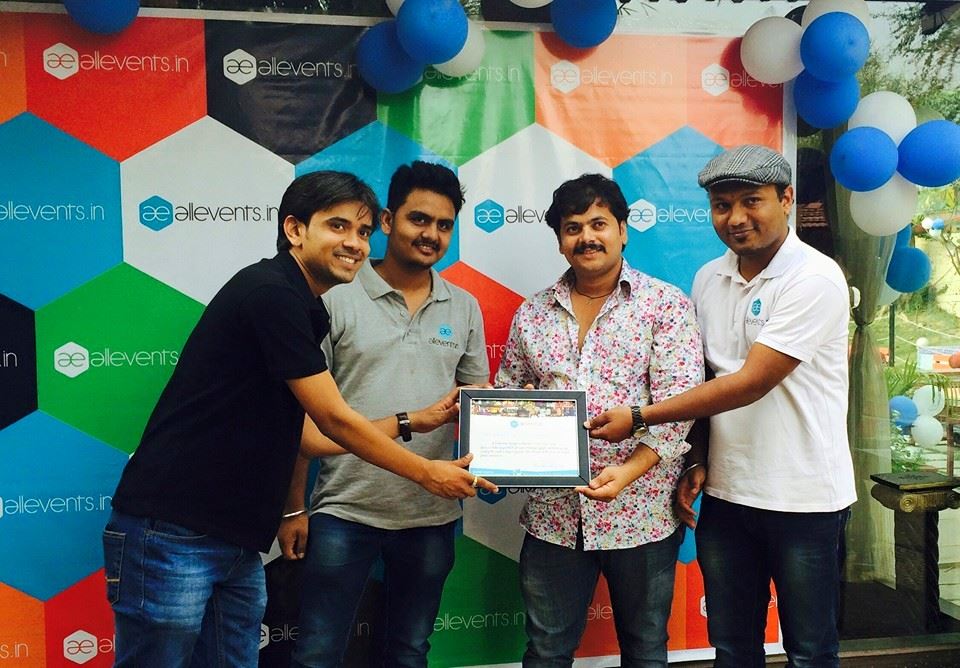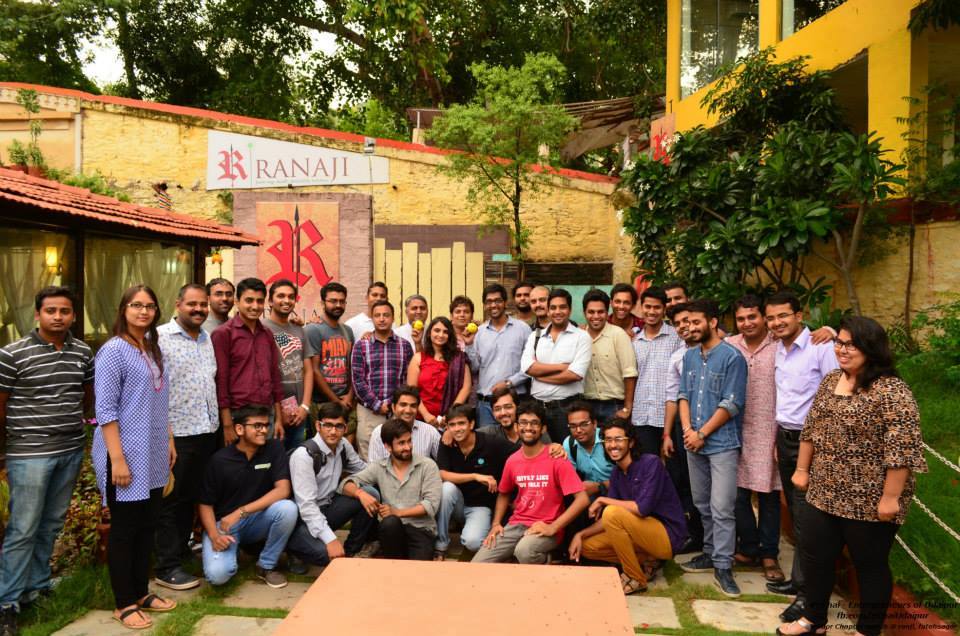eChai with Prashant Jain, Founder, Ranaji Restaurant
Our guest for today's eChai with an Entrepreneur is Prashant Jain, Founder, Ranaji Restaurant. RANAJI is a casual Pure Veg Multi-cuisine Restaurant at the famous Fateh Sagar Lake (Paal), Udaipur. The restaurant is named after the Hindu Rajput ruler of Mewar, Maharana Pratap. Maharana Pratap is considered to exemplify the qualities like bravery and chivalry to which Rajputs aspire, especially in context of his opposition to the Mughal emperor Akbar.
Here is an insightful and candid conversation with Prashant Jain.
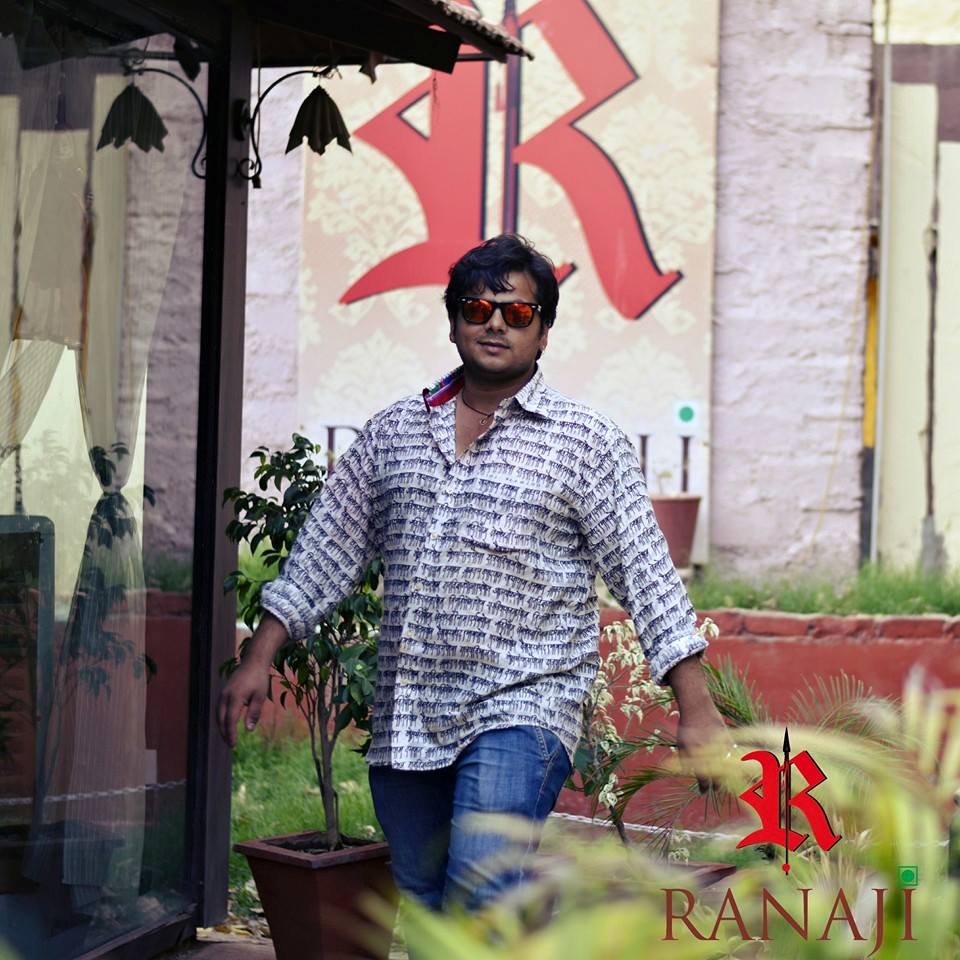
Early Years : When did it first strike you to begin this venture and why? Your Eureka Moment (the moment you decided to be an entrepreneur).
I started off my professional career with the job during the first year of my college, with a salary of merely INR 1500 per month. While I didn’t have any complaints with my job, once it occurred to me that can I purchase a home of my own at this young age? I realized while in job there is a little chance that I will be able to do so, because there probably are negligible savings with a routine job.
In a job life, a typical corporate employee always needs to stay dressed well, show off his/her standards and in order to flaunt the status, spend huge portions of income to maintain those standards required. However, these rules do not apply to any entrepreneur.
An entrepreneur can do his/her work or maybe event leading a team, as well as even cleaning and washing dishes. They don’t live by the rules of society, they create their own rules. They do not need any status to flaunt or standards to show off.
In 2010 this idea came to my mind, followed by my first entrepreneurial stint in construction and real estate market. Eventually I ended up being in the hospitality sector in 2012, and hence in 2013, Ranaji was born.
Business Venture : What is your business model and what problems does it solve? What are market opportunities? How is it different from your competitors? How do you generate revenues ?
Talking about the business model, Ranaji is the largest restaurant serving pure vegetarian and non-alcoholic cuisines in Udaipur. The problem it solves is providing a pure vegetarian and non- alcoholic environment with a great ambiance right at the heart of the city of lakes, the Fatehsagar lake to the tourists from neighboring states as well as local residents who always are on hunt of good quality and pure vegetarian food, which is the first key differentiator from others.
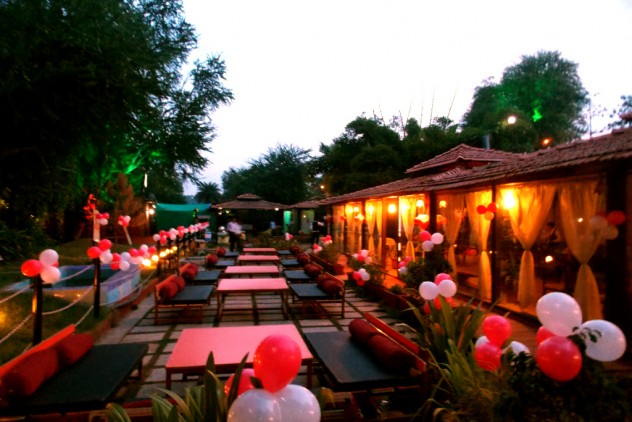
Next point of difference is our layout and presentation. Ranaji was set up with an aim to provide a good open feel to the guests, and not let them feel ‘compacted’ in tight spaces. You can relate Ranaji to the likes of a mini-resort than a conventional restaurants we see around the country.
Another major point of difference is of course the location. Its one of the most accessible places of the entire city, by any Udaipurite or any tourist. Speaking of market opportunities, I entered into entrepreneurship to make a better living as I answered in the previous question, but I did start this venture out of my heart’s call.
It is obvious that food and hospitality sector is a hot market, but its very hard to create a dent in the beginning days as well. I never really estimated the market size or the associated schematics, but we’re growing at a good pace and slowly we aim to come up with more offerings in the sector.
Sales : How did you make your first sale and how much time it took you from starting up to closing the first sale ? How long is your sales cycle ?
Since we are situated in the heart of the city, it did not cost me an arm and a leg to attract visitors. Being a prime location, and very good ambiance, people passing by the lake decided to give it a try.
We generated our first sales (more than one) on the first day itself. Sales cycle is the standard to any restaurant business, people visit, spend a quality time with good food and ambience, followed by paying their bills.
We also take separate bookings for parties, seminars, corporate and startup meetups, etc. Off the record, Ranaji also takes pride in officially hosting the eChai Udaipur sessions and #AEFEst - an annual event of AllEvents.in
Company Culture : What kind of culture exists in your organization? How did you establish this tone and why did you institute this particular type of culture?
I’m always a believer of team culture. I give personal attention to each and every team member and listen to their personal problems as well if they wish to share. I organize birthday parties and other parties with their entire families in it on various occasions, whether it be related to Ranaji or their own.
I inculcated the team spirit against the boss-employee relationship so that everyone feels comfortable enough to work and give their best. Reason being to provide a stress free environment to each and everyone in the Ranaji family.
Partnerships : What are your views about finding the right Co-Founder ? How did you find your business partner? According to you who is the ideal business partner?
Out of Ranaji’s experiences alone, I can easily say that finding a cofounder is a tough call. Anyone can be a cofounder, but it’s a real painful task to maintain the bonding if the cofounders think, act, believe poles apart. I had cofounders in the beginning of the venture but they lost faith soon and parted ways. Trust, integrity and carrying individual dignity is a second thing one should look into an ideal cofounder or a business partner, apart from the main feat of metal frequency matching in the first place.
Hiring - How did you hire your first employee ? And in general what's your hiring policy ? How important have good employees been to your success?
I had a friend in hospitality business, he recommended a person to me. He thus became the first chef with Ranaji. My hiring policy is simple. I prefer skill over education. If one is skilled enough to add value to the organization, they’re most welcome.
Every employee has been equally responsible in the success of Ranaji. Since in this field every contender is expected to create a difference by their service to create a lasting impression on the guests, the team has been doing a commendable job.
Learning : How did you handle your disappointments and failures?
Learning from failures and improvising over them. This has been the first and foremost principle of mine to handle failures. Delivering service is first priority and the key differentiator in the cutthroat competition in this field of food and hospitality.
One can’t afford to make a mistake and keep repeating them from time to time. Hence learning from mistakes, even the silliest ones is my approach.
Vision: What's your vision for your venture. What do you want to accomplish in your life ? What are your future aspirations?
In future I wish to establish Ranaji as a chain of pure veg non-alcoholic restaurants in multiple cities, via both franchisee route as well as self-occupied branches, across the country. My vision is to have a global branding of Ranaji that can relate very well to Rajasthan and Udaipur.
Work-Life Balance : How do you find a balance between work family and social life?
I try to create an optimum balance between the three. Of course business is a top priority for me but that shouldn’t exceed a certain level where it starts hampering family and social life.
Due to the nature of my business, I somehow am able to manage my social life and business if not simultaneously, yet back to back. That gives me a good time to spare with my family.
Risks : Which was the boldest decision you ever made to have this venture work?
In the beginning days we were going good, but soon there came the dark time. Some losses piled up. There were two more partners with me, they lost faith and decided to part ways. Even the very first employee I discussed about, left.
Situations were forcing me to shut down the operations, dissolve it and look for something else. My boldest decision in this aspect was my decision to stick to the venture and not let it close. I lessened my every possible expenses, worked in double shifts to break even against those losses made. That was the dead end and with my decision I was able to carry on with Ranaji.
Here are some of the amazing photos from his entrepreneurial journey.
